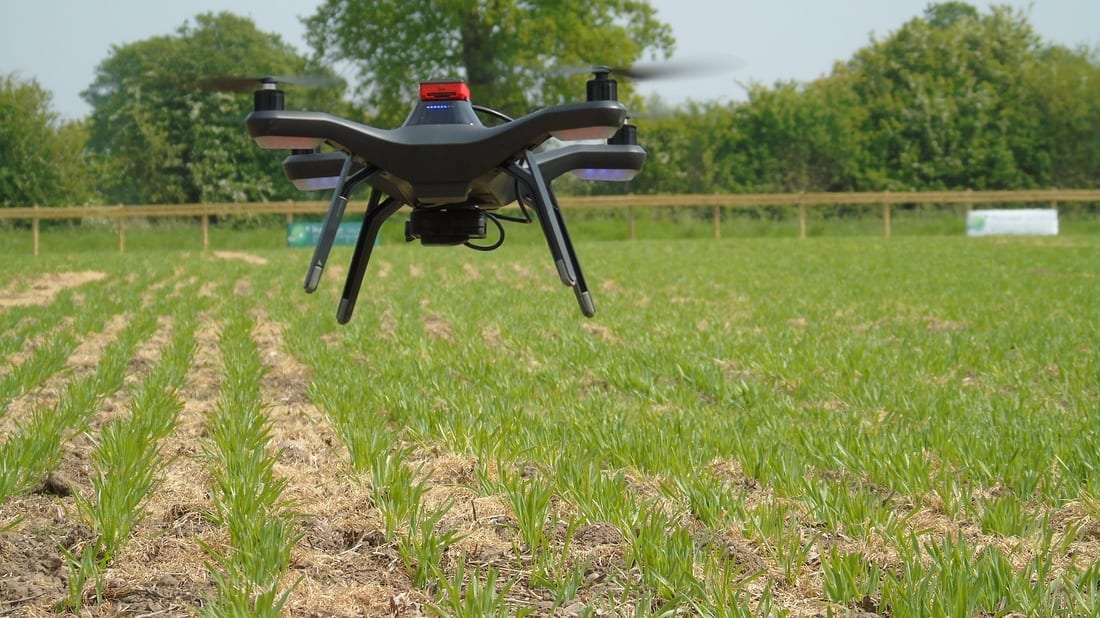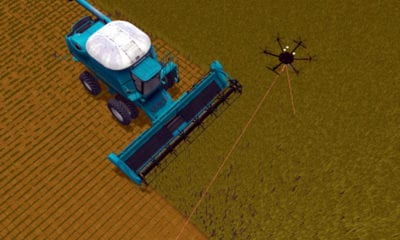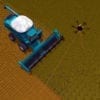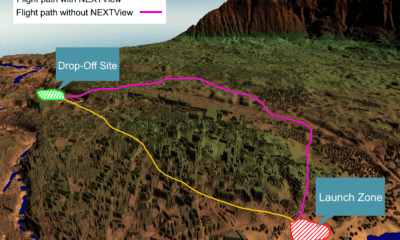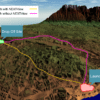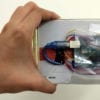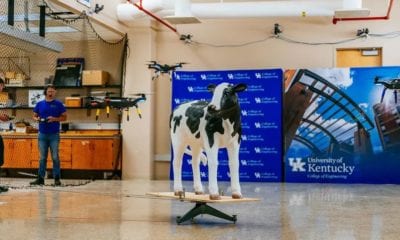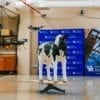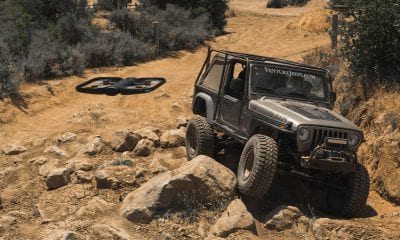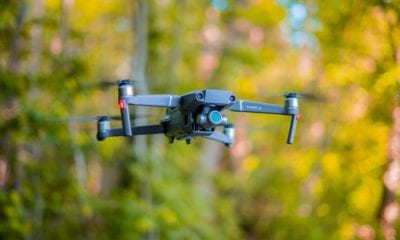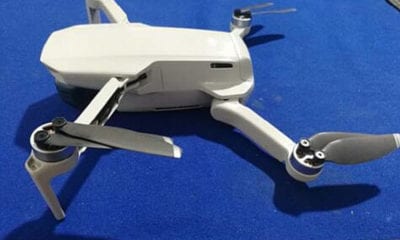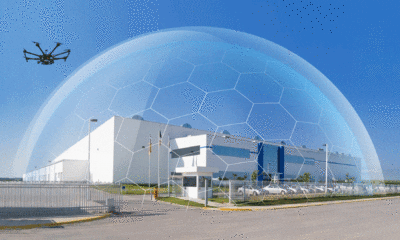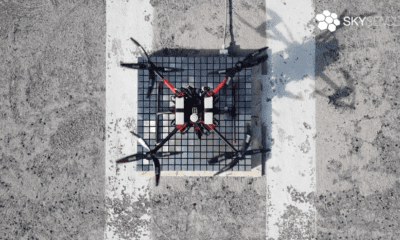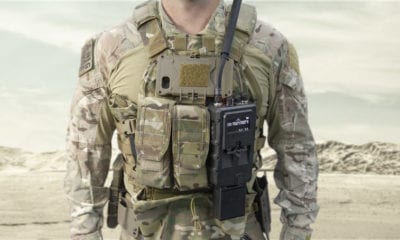Will First Ever Crop Planted Completely by Drone in UK Mean Lost Jobs?
It’s a common conundrum – do new technologies do people out of jobs, or create new ones? While companies in other countries are seeking to attract a younger generation to agriculture with the introduction of drone technology, researchers in the United Kingdom have instead planted and harvested a crop of barley completely by drone.
The world-first Hands Free Hectare project, undertaken by Harper Adams University and Precision Decision and using drones and robot tractors, aimed to grow an entire crop without anybody stepping foot inside the one hectare paddock.
Farming is becoming increasingly already automated, such as GPS steering, and methods are already being developed to use drone imaging technologies by companies such as Parrot to detect problem areas in crop fields such as under-fertilisation or pest and disease.
Researcher Martin Abell said although the crop was autonomously produced from start to finish – seeding, spraying, monitoring and harvesting – he sees it attracting people to the industry, and raising the public image of agriculture as a job choice.
“We have been able to show the public that this is something that isn’t too far ahead in the future, and it could be happening now,” he said. “It has also allowed us to raise the perception of agriculture to the public, so they see it as a forward-thinking industry and something that might attract new people to the industry.”
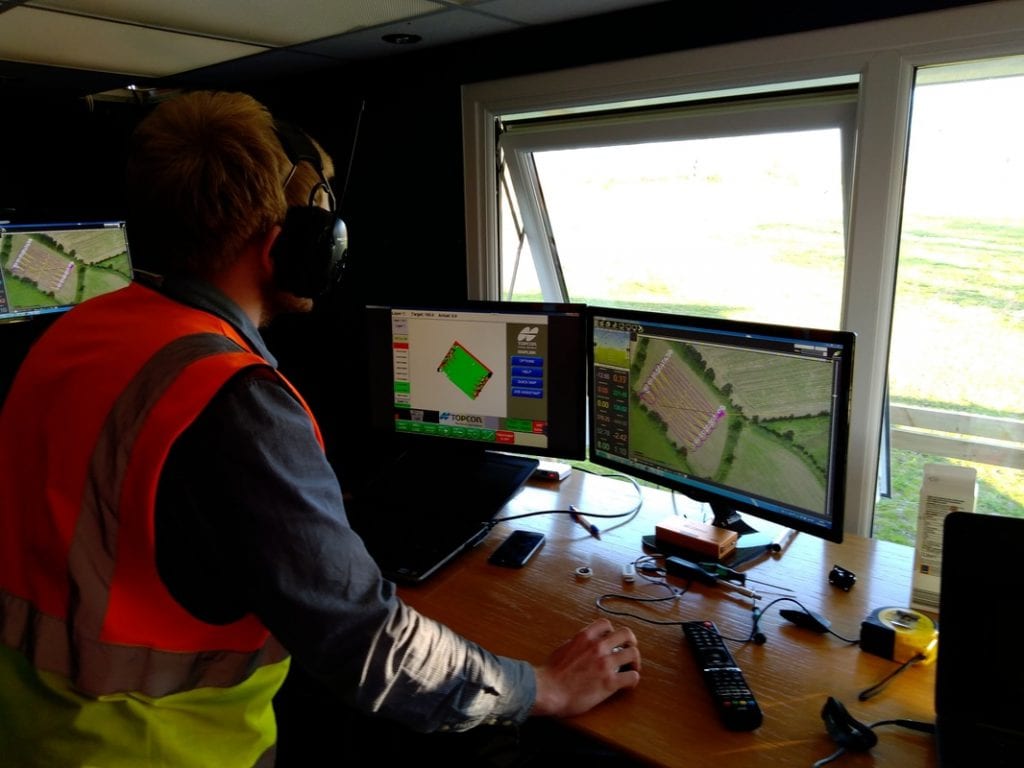
Researcher Martin Abell checks the data from the Hands Free Hectare paddock | Hands Free Hectare
To complete the project, the researchers automated small agricultural machines, such as tractors and chaser bins using drone technology, as well as monitoring and collecting samples for agronomists to analyse.
“They were essentially our eyes, so we would assess the field using a multi-spectral camera and get imagery from the field showing us where it was strongest and weakest,” Mr Abell said. “We would then send a little ground rover that would collect samples for us that we could conduct agronomy on.”
Using the drones for tasks such as navigation brought its own problems, as drone navigation algorithms differ significantly from the straight line navigation calculations used by auto-steering tractors. To do this, the researchers used an autopilot from a drone. Mr Abell said was unconventional for research, but was necessary because of time limitations of crop harvesting.
“We only had a year to do this project so we had to pick something that didn’t require much development,” he said. “So we had to adapt that system to work like an auto steer system and achieve those straight lines that farmers are familiar with.”
All in all, the project was conducted successfully but more work needs to be done to enable drone harvesting on a full-scale.
Mr Abell said the project parameters of working within a small budget meant it was feasible for the one hectare, and is sure if they can scale it up the method could be taken up by cost-conscious farmers.
“It was roughly $350,000 we had, and that was also to hire three people’s time, as well as all the equipment we had to buy. I am sure if we can make it happen on that budget they can do it commercially with something that is user-friendly for farmers.”
The group’s mechatronics researcher, Jonathan Gill, believes the Hands Free Hectare project will encourage others to turn to agriculture using autonomous methods to raise animals and crops for food. “It’s going to take new talent entering the industry to develop this technology,” he said. “We hope this project helps to inspire people and show them the range of interesting and innovative jobs that are available now in agriculture.”
How useful was this post?
Click on a star to rate it!
Average rating 0 / 5. Vote count: 0
No votes so far! Be the first to rate this post.
We are sorry that this post was not useful for you!
Let us improve this post!
Tell us how we can improve this post?

